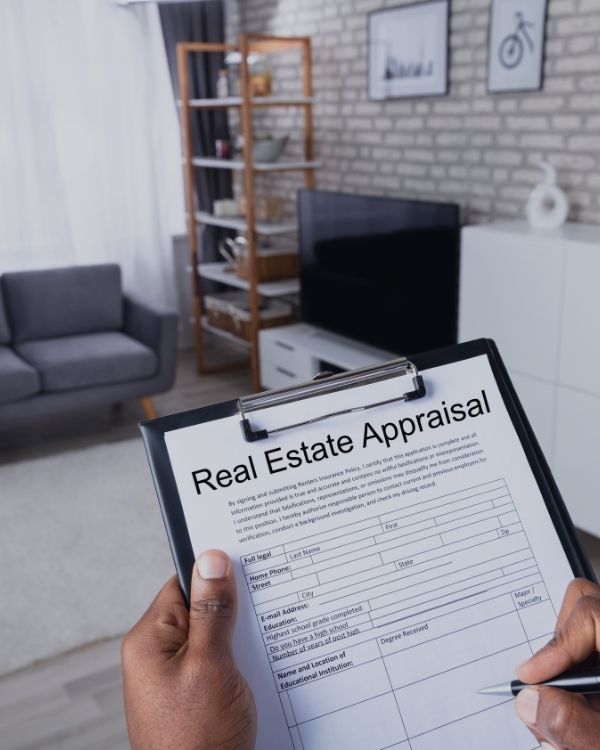Buying a Home? Here is What Can Go Wrong
The home-buying process can be one of the most exciting, exhilarating, and exhausting tasks you will ever attempt. From deciding how much square footage your home needs to have or which type of property is right for your family’s needs to allocating funds towards closure costs. These are just a few things on a very long list!
Every day, we face thousands of life decisions. Some may seem major and worrying to us at first but if you look closer there could as well be hundreds (and sometimes even more) little things that could go wrong. They have the potential to lead your emotions in a downward spiral fast enough for it all to become too much to handle!
Houses are always an investment. You want to make sure you choose wisely and avoid any potential problems with your purchase, but what can go wrong when buying a house? Below are some of the most common obstacles that might stand in front of reaching your goal.

Buying more than you can afford
The first step while buying a house is taking the time necessary for research and consideration. You need to have an honest look at your budget so you know what type of home you will be able to afford.
To avoid the risk of regret, it is important not only for your finances but also for your mental health that you don’t overextend yourself. The financial burden can be too much and make you unhappy and you risk losing your home if one day things go sour financially.
Don’t get caught up in the idea that you need to take out as much money as you can at once. Think about what monthly payment amount would work for your lifestyle and budget. The focus should be on whether or not you can afford your monthly payments rather than focusing solely on receiving approval from lenders.

Your significant other doesn’t like the home
A very common occurrence when it comes down to finding that perfect home is having a partner who has different taste than you do. It can be frustrating when your significant other decides he or she doesn’t really like the home you have chosen and wants to continue looking around for another.

Problems with the appraisal
The listing indicated that property taxes on the home were only $1,500 per year but now they are at least two times higher. This is a common problem with appraisals. It can be difficult to get an accurate reading on the value when there is so much uncertainty in real estate market fluctuations. This means that sometimes you might come up short.
Mistakes that prevent closing on time
The final stage of the home selling process is closing. This can be a very exciting time for both buyers and sellers, but it also comes with some challenges that need attention. Your closing might be delayed due to mistakes.
If anyone makes an error during this process, then you could potentially end up waiting even longer than anticipated – which would result in higher costs as well as resentment from both parties involved in the property purchase. Depending on the contract and whose fault it is, one may have to pay a penalty for any days that closure gets pushed back past its original date of completion.
You didn’t qualify for a loan
When you thought buying your dream home was going to be easy. But just imagine how disappointed you would be if your bank said no. Imagine you didn’t qualify for even half of what it would have taken to buy your desired property and now everything is too expensive or not available anymore!
Remember that a loan is only closed when all obstacles in its way have been removed. You may have lied in the application; interest rates could have increased sharply, and your job situation might have changed. That would lead you to receive an inquiry from creditors about where you are employed now or if you have any unpaid debts – but these things can usually be prevented through careful planning before applying for financial assistance.
Loans are often finalized with some conditions. If you fail to meet the pre-agreed specifications, then your loan may get denied or delayed for an extended period of time until these things can be looked into and resolved accordingly!
Low credit scores
If you have a low credit score, it can make getting your hands on the perfect home much harder. When you apply for a mortgage, the lender will check your credit score. A low number can make it difficult to qualify and to get approval – meaning that your home purchase might be pushed back.
If you are looking to buy a home soon and your credit score is preventing you from an easy qualification, here are three tips for raising it:
1) Pay all debts on time every month – this will help increase your positive impression from potential lenders but also show that you aren’t straining available loans. It shows that you have been able to manage your finances while still maintaining some degree of discipline over spending.
2) Create repayment plans if necessary, based on income or other special circumstances.
3) Make sure everything matches up properly by double checking monthly statements against accounts (invoices/bills).
Conclusion: There is a small chance that most of these obstacles even happen
Don’t worry, chances are that most of these obstacles will never happen to you. If they do though, keep in mind all problems can usually be worked out – perhaps not on your preferred timeline but eventually! Signing on the dotted line will be worth every headache and heartache when you finally do it.





